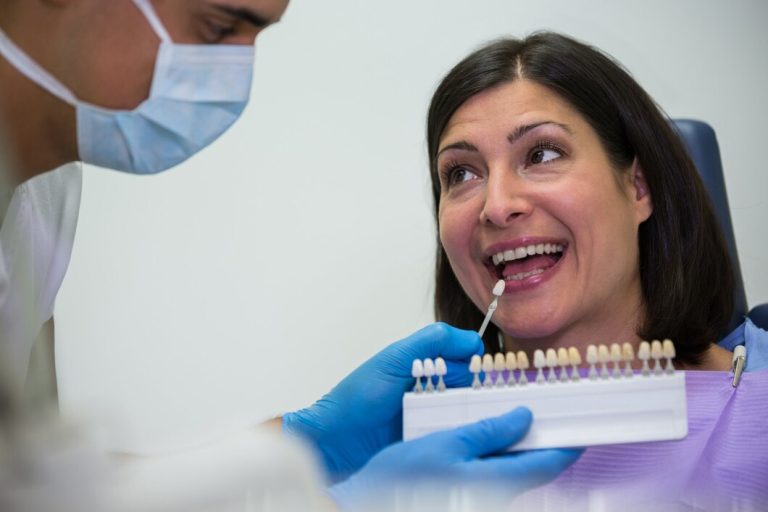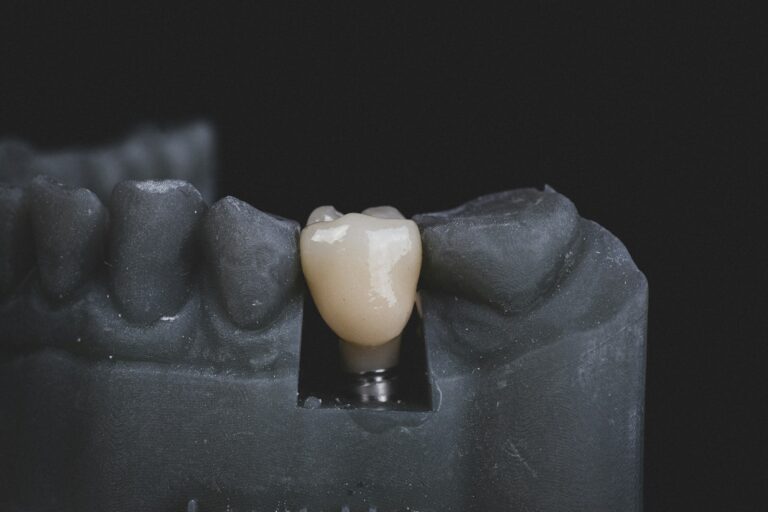Gum health is an important part of your overall oral health. Despite this, many myths and misconceptions about gum care persist. Believing these myths can lead to poor gum health, which may result in serious problems like gum disease. It’s crucial to understand the facts to take proper care of your gums.
With that in mind, we’ll debunk these common myths and provide you with the right information to keep your gums healthy. With the correct knowledge, you can take better care of your gums and avoid potential problems. Let’s clear up these misconceptions and focus on the facts about gum health.
Separating Fact from Fiction: Gum Health Myths
1. Myth: Bleeding Gums Are Normal
Many people think that it’s normal for gums to bleed, especially during brushing or flossing. However, bleeding gums are often a sign that something is wrong. Healthy gums should not bleed easily. If you notice blood when you brush or floss, it could be a sign of gingivitis, an early stage of gum disease.
Gingivitis happens when plaque builds up on your teeth and irritates your gums. If left untreated, it can progress to periodontitis, a more severe form of gum disease. Periodontitis can lead to gum recession, loss of teeth, and other serious health problems. Early signs of gingivitis include red, swollen, and bleeding gums.
It’s important to address bleeding gums promptly. Regular and proper brushing and flossing can help remove plaque and reduce gum irritation. If your gums continue to bleed, it’s best to see a dentist. They can check for signs of gum disease and advise you on improving your gum health. Remember, bleeding gums are not normal and should not be ignored.
2. Myth: You Don’t Need to Floss If You Brush Well
Brushing your teeth is crucial, but it isn’t enough to maintain good gum health. Many people believe that if they brush thoroughly, they don’t need to floss. This is a common misconception. Flossing is essential because it removes plaque and food particles from between teeth and under the gumline, areas that your toothbrush can’t reach.
Plaque buildup in these areas can lead to cavities and gum disease. When you don’t floss, you leave about one-third of your tooth surface uncleaned. Over time, this can cause tartar to form, which a dentist can only remove.
Flossing also helps to keep your breath fresh by removing food particles that can cause bad odors. It can take a bit of practice to floss correctly, but once you get the hang of it, it only takes a few minutes each day. By integrating both brushing and flossing into your routine, you ensure a more comprehensive clean and better gum health.
In summary, flossing is an essential part of oral hygiene. It works together with brushing to keep your gums healthy and prevent dental problems. Make flossing a daily habit to maintain a clean and healthy mouth.
3. Myth: Gum Disease Only Affects Older Adults
Many people think gum disease is mostly a problem for older adults, but this isn’t true. Gum disease can affect people of all ages, including children and teenagers. While the risk of gum disease does increase with age, poor oral hygiene at any age can lead to gum problems.
Young people often overlook the importance of gum care, thinking it will catch up with them later in life. However, gingivitis can develop at a young age if brushing and flossing aren’t done properly. Teenagers who have braces are even more susceptible because braces can trap food and make cleaning more difficult.
Preventing gum disease should start early. Teaching kids and teenagers good oral habits can lead to a lifetime of healthier gums. It’s important to brush twice a day, floss daily, and visit the dentist regularly for cleanings and checkups. Early education about gum health can prevent serious issues down the road.
4. Myth: Gum Health Doesn’t Impact Overall Health
Another common myth is that gum health doesn’t affect your overall health. This is far from the truth. Your mouth is the gateway to your body, and poor gum health can lead to other serious health problems. Research has shown that gum disease is linked to conditions such as heart disease, diabetes, and stroke.
Gum disease causes inflammation and bacteria in your gums, which can enter your bloodstream. This can impact your body’s immune system and overall health. For example, people with diabetes are more prone to infections, including gum disease, and gum disease can make it harder to control blood sugar levels.
Keeping your gums healthy can help maintain your overall health. Regular brushing, flossing, and dental checkups are essential steps. By taking care of your gums, you’re also taking care of your whole body. Remember, good oral hygiene practices benefit your health beyond just your mouth.
Debunking Gum Health Myths: What You Need to Know
Believing in gum health myths can harm your overall oral hygiene. It’s important to know the facts so you can take the best care of your gums. Bleeding gums are not normal and need attention. Flossing is a necessary part of your daily routine, alongside brushing. Gum disease can affect anyone, not just older adults. Lastly, gum health plays a significant role in your body’s health.
By understanding and debunking these myths, you’ll be better equipped to take care of your gums. Healthy gums lead to a healthier life. If you have concerns about your gum health or need professional care, visiting a dental specialist is crucial.
For expert gum care and preventive treatments, visit Colorado Gum Care. Our team of periodontists in Broomfield, CO, is dedicated to keeping your gums and teeth healthy. Schedule an appointment today to ensure you’re on the right track for excellent gum health!







